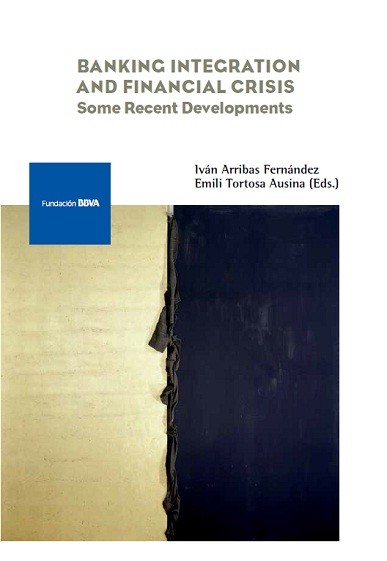
PublicationMonographs
Banking Integration and Financial Crisis
Some Recent Developments
Financial integration, in general, and banking integration, in particular, have received a great deal of attention over more than 30 years from academia, policy-makers and practitioners.
Although the causes underlying its upward tendency are varied, there is some consensus regarding its benefits, which are both diverse and substantial. However, the recent 2007-2008 financial crisis has jeopardized this increasing tendency, and has led to more diverse points of view about the overall effects of enhanced financial and banking integration.
In this book, five contributions examine how the recent international financial crisis has contributed to relaunch the debate on the potential benefits, or dangers, of financial integration. This is done by considering not only different aspects of the issue at stake but also the multiple ways in which it can be approached.
The first two chapters analyze, for the Spanish case, the effect of bank market expansion when it comes hand in hand with risk exposure and liquidity imbalance, and the role played by securitization before and during crises. The third chapter introduces new measures of banking system integration to discuss the relationship between the level of integration and the effect of crises, while the last two chapters use theoretical models to explain the sources of contagion and systemic risk, and the effect and propagation of a bank’s default in a banking system.
The contributors to the book are prestigious international scholars specializing in the fields addressed. These include banking, in general, on which Santiago Carbó (Bangor Business School), Alfredo Martín (U. Balearic Islands), Francisco Rodríguez (U. Granada) and Emili Tortosa (Jaume I University and Ivie) have published extensively, and also network analysis (especially from a financial point of view), a field in which Matteo Chinazzi and Giorgio Fagiolo (Sant’Anna School of Advanced Studies), Thomas Lux (U. Kiel, Kiel Inst. for the World Economy and Jaume I University), Mattia Montagna (European Central Bank) and Iván Arribas (U. Valencia, ERICES and Ivie) have made relevant contributions.
This book will be of particular interest to academics in the areas of financial and banking markets and economic integration, as well as to practitioners and policy-makers.
